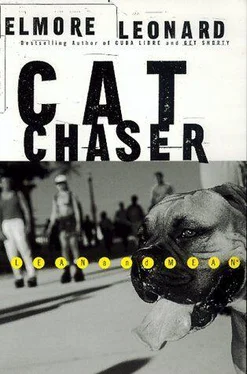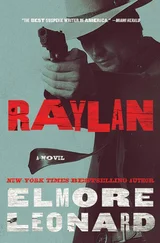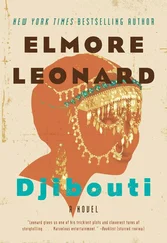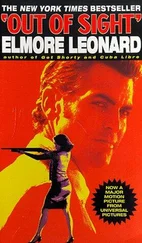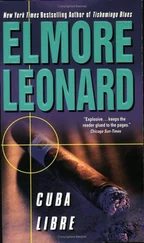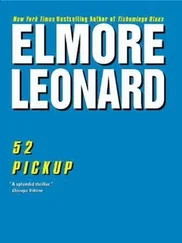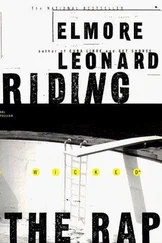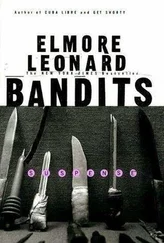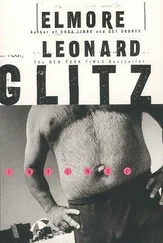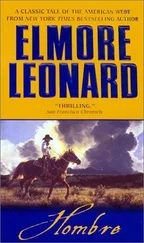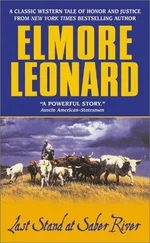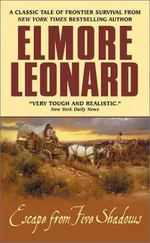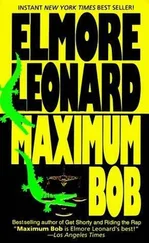Leonard:I believe that. There’s no question about that. I’m not concerned with how closely it’s adapted. I just hope it’s a good movie. For example, Rum Punch to Jackie Brown . Quentin Tarantino, just before he started to shoot, said, “I’ve been afraid to call you for the last year.” I said, “Why? Because you changed the title of my book? And you’re casting a black woman in the lead?” And he said, “Yeah.” And I said, “You’re a filmmaker. You can do whatever you want.” I said, “I think Pam Grier is a terrific idea. Go ahead.” I was very pleased with the results, too.
Amis:And how about Get Shorty ? That must have felt like another breakthrough.
Leonard:It was. It was the first contemporary story of mine that I really liked on the screen. And I said to Barry Sonnenfeld, the director, “But you’re advertising this as a comedy.” And he said, “Well, it’s a funny book.” And I think it did have my sound, and it had Barry’s look. Because I could hear my characters on the screen, and I think the reason it worked was because they all took each other seriously and didn’t laugh. There weren’t any nods to the audience, any signals to the audience with grins or winks that that was a funny line. It was up to the audience to decide. This was the first question I asked Barry. I said, “When you shoot, I hope you don’t cut to reactions to lines.” He understood that, of course.
Amis:I was on the set of Get Shorty , as a journalist. I was writing a profile of John Travolta [for The New Yorker ]. And usually when a journalist goes to the set of a film, he stays for six hours and sees one person cross a road and then goes home again. But on this occasion, I got to see the fight between Chili and the Bear [James Gandolfini] at LAX in the car park. And John Travolta, who is sweetness incarnate, gave me an insight into the star system. We were all going off to lunch, and a limousine appeared. I was going to have lunch with John in his trailer. I thought there was obviously some way to John’s trailer. In we got and drove a few feet, and John said to the driver, “Pull over,” and then asked the Bear if he wanted a ride. And the Bear said, no, he was fine, he was going to do it on foot. And then we started off again and pulled up at the elevator. And that’s as far as we went. The Bear joined us in the car and down we rode. Travolta explained that it was as important to seem like a star as it is to be a star. [Laughter]
Movies deal with externals, largely, and books with internals. Is that what strikes you as the main difference between the forms?
Leonard:I would say definitely that. The first day I was on the set of Get Shorty , John Travolta called me “Mr. Leonard.” And I let him. He got over that.
Amis:Did you call him “Mr. Travolta”?
Leonard:No, I didn’t. I’m using my age now. [Laughter]
I don’t think there’s any question that it’s difficult for movies to internalize. The reason I’ve been able to sell all my books is because they look like they’re easy to shoot. They’re written in scenes, and the stories move through dialogue. I think the problem has been, in the past, that they’ve been taken too seriously. They haven’t been looked at as if there is humor in them. And also the fact that when you bring a 350-page manuscript down to 120 pages, in my books a lot of the good stuff is gone. It disappears. Because then you’re more interested in plot than you are in, say, character development.
Amis:People say that movies will be the nemesis of the novel. But I think that’s a crisis that’s already been survived. I think the novel is more threatened from the Internet than from movies. I feel the movies are still an immature form, a young form, that they’re still in the adolescent stage. It will take a while before they can challenge the internal nature of the book. Do you ever worry about the death of the book?
Leonard:No, I can’t imagine such a thing. Ed McBain and I were on one of the morning shows, and we were asked, “To what do you attribute the resurgence in popularity in crime fiction?” And we looked at each other, and we thought it was always very popular. We didn’t know that it had dipped at all. We have to always have novels. My God, what would you read?
Amis:Well, they say you won’t be reading; you’ll be having some kind of cybernetic experience. I think that the future of the book perhaps will be that the book will coexist with some kind of cybernetic experience, where the punter, the depositor (or whatever you want to call him), may read your book and then take you out to dinner in cyberspace – looking ahead about a hundred years.
Now, I’m going to ask you this question because I’m always tortured by it. This is the sort of invariable question of the tour. Do you set yourself a time to write every day? How hard do you press on the paper when you write? I’m asked this so unerringly that I think people suspect that I’m going to reveal that what you do is you go into your study and you plug your ear into the light socket and then some inner voice tells you what to write. But what is your routine and how do you go about it?
Leonard:I write every day when I’m writing; some Saturdays and Sundays, a few hours each day. Because I want to stay with it. If a day goes by and you haven’t done anything, or a couple of days, it’s difficult to get back into the rhythm of it. I usually start working around nine-thirty and I work until six. I’m lucky to get what I consider four clean pages. They’re clean until the next day, the next morning. The time flies by. I can’t believe it. When I look at the clock and it’s three o’clock and I think, “Good, I’ve got three more hours.” And then I think, “I must have the best job in the world.” I don’t look at this as work. I don’t look at it as any kind of test, any kind of proof of what I can do. I have a good time.
Amis:And it just seems to flow? There are no days when whole hours are spent gazing out of the window, picking your nose, making coffee?
Leonard:Oh yeah, there are whole hours’ work to make one short paragraph work.
Amis:I want to ask about your prose. Your prose makes Raymond Chandler look clumsy. Now the way I do it is: I say the sentence in my head until nothing sticks out, there are no “elbows,” there are no stubbings of toe; it just seems to chime with some tuning fork inside my head. And then I know the sentence is ready. In your work, pages and pages go by without me spotting any “elbows.” Even with the great stylists of modern fiction, you know you’re always going to come across phrases like “Standing on the landing” or “the cook took a look at the book.” There’s always some “elbow” sticking out, there’s some rhyme causing the reader to pause and wonder and think, “That’s not quite right.” With you, it’s all planed flat. How do you plane your prose into this wonderful instrument?
Leonard:First of all, I’m always writing from a point of view. I decide what the purpose of the scene is, and at least begin with some purpose. But, even more important, from whose point of view is this scene seen? Because then the narrative will take on somewhat the sound of the person who is seeing the scene. And from his dialogue, that’s what goes, somewhat, into the narrative. I start to write and I think, “Upon entering the room,” and I know I don’t want to say “Upon entering the room.” I don’t want my writing to sound like the way we were taught to write. Because I don’t want you to be aware of my writing. I don’t have the language. I have to rely upon my characters.
Читать дальше
